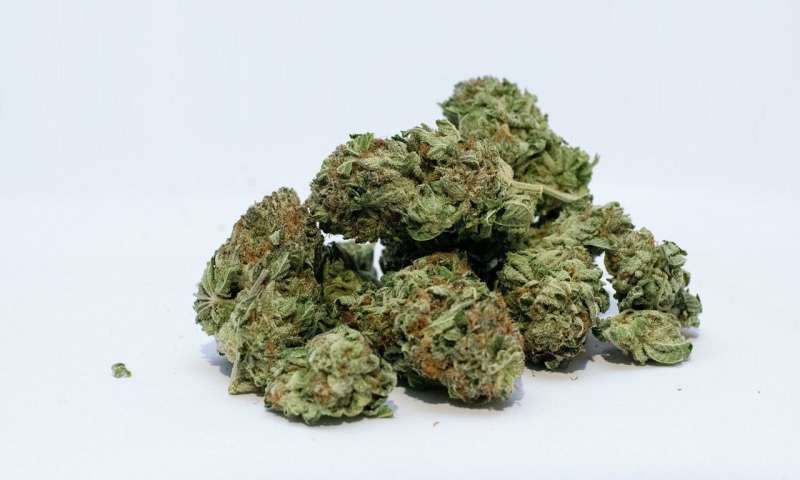

In a new study, researchers at The University of New Mexico measured the effectiveness of commercially available Cannabis flower, or “buds,” for alleviating feelings of stress and anxiety. Using data collected by the Releaf App, the largest repository of real-time cannabis usage sessions in the United States (US), researchers found that over 95 percent of time, Cannabis users experienced an immediate stress reduction that averaged roughly 4 points on a 0-10 point scale.
In the age of COVID-19, many of us feel a heightened need for safe, natural remedies for coping with the newfound stressors of living through a pandemic. The unpredictable nature of the pandemic’s progression, its widespread economic consequences, safety mandates, disruptions to normal living schedules, increased time spent alone, and of course, the possibility of contracting the disease itself have negatively affected mental health, with no certain ending in sight.
In the study, “The Effectiveness of Inhaled Cannabis Flower for the Treatment of Agitation/Irritability, Anxiety, and Common Stress,” published in the Journal of Cannabis Research, investigators showed that while a minority of users experience heightened feelings of anxiety after consuming Cannabis, the average user is far more likely to experience significant stress reduction. Moreover, the plant characteristic with the strongest correlation with stress relief was tetrahydrocannabinol, or THC, with higher THC generally being associated with greater anti-anxiety effects.
“The finding that THC is a stronger predictor of anxiolytic effects than is its non-psychedelic cousin, cannabidiol, or CBD, is not surprising, given that THC is a partial agonist of Cannabinoid 1 receptors, which are located throughout the central nervous system and brain regions responsible to detecting and responding to threats in our environment,” describes University of New Mexico Department of Psychology Assistant Professor Jacob Miguel Vigil. “CBD on the other hand is more likely to operate behind the scenes in ways that, while likely quite beneficial for general health, are not as effective at regulating affective responses, or what we commonly refer to as ‘our feelings.'”
The study observed more than 2,300 cannabis flower self-administration sessions completed by 670 people using the Releaf App, a mobile software application designed to help users monitor the medicinal and unintended side-effects from different types of cannabis products. The app enables users to record the fundamental characteristics of the cannabis products and dosing strategies alongside any possible changes in symptom intensity levels and other potential side-effects in real-time.
Plants labeled as C. Sativa were associated with less overall symptom relief, confirming the popular belief that C. Indica plant strains are generally more calming than other plant varieties. The varying effects from different varieties of the Cannabis plant may enable patients to access more individualized medications than is typically the case for other major classes of pharmaceutical medications used to treat disorders.
The current study helps explain why many patients attempting to treat feelings of distress often voluntarily substitute medicinal use of cannabis for several classes of prescription medications, including those used to treat negative affect (e.g., SSRIs, SNRIs, TCAs, MAOIs, beta-blockers, atypical antipsychotics, and benzodiazepines), once given the legal opportunity to do so. Alcohol and many conventional psychiatric medications are associated with frequent and severe negative side-effects, adverse reactions, acute toxicity, and even risk of death.
Source: Read Full Article